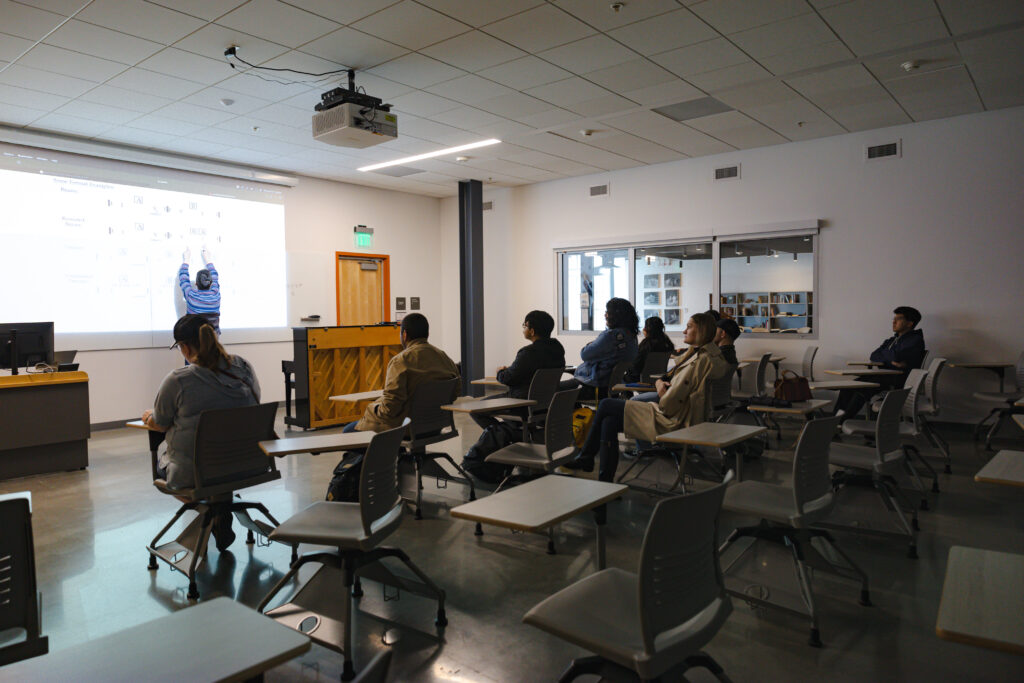
Black teachers: How to recruit them and make them stay

Lessons in higher education: What California can learn

Keeping California public university options open

Superintendents: Well-paid and walking away

The debt to degree connection

College in prison: How earning a degree can lead to a new life

When most people think of a substitute teacher, they think of a temporary fill-in for a job that is difficult to secure and difficult to do. They might think that a substitute is simply there to monitor a classroom or, worse yet, put on a video for the class and then sit at their desk.
I know substitutes are so much more.
The best substitutes are passionate mentors who play a role in student success. As a substitute teacher with 14 years of experience in public and private schools in Oakland, I believe my commitment to students and my experience outside of teaching enable me to be a valuable guide in the lives of the K-12 students I have the privilege of working with, and I want more school leaders to recognize that role.
Before I started teaching, I served in the Air Force, went to law school, became a paralegal, and launched my own clothing line. I bring every aspect of these experiences — the ups and the downs — with me to the classroom to provide a fresh perspective to students. When I substitute in math classes, I can talk about how interpreting numbers helps entrepreneurs understand their profit margin in the future. In language arts classes, I can talk about how persuasive arguments are the basis of a strong legal case. And, in all my classes, I’m always quick to discuss the importance of critical thinking, adaptability, and a strong work ethic, no matter where a student’s life will take them.
Each time I bring my personal experience into the classroom, I know I’m showing students more about the world around them and helping them connect what they’re learning to their future. It’s something so many mentors did for me. I was fortunate to be surrounded by caring adults when I was growing up. When I needed great life advice, I knew I could turn to them. Their support is part of the reason I started teaching. Sharing knowledge is contagious. When I share knowledge with a student or show them how to do something, then they have the knowledge I have and can share it with someone else.
Even though I know the value of sharing knowledge, students aren’t always ready to accept it. Especially from a substitute teacher. I have to earn their trust first. That means the role of a substitute is more than simply managing a classroom in the absence of a regular teacher. Students have to be able to trust that a substitute is emphatically inclined to believe in them and their purpose. I’ve found that starting with a joke, posing a tough question, or asking students to say one fun thing about themselves during introductions can break the ice and form a strong mentor-mentee relationship.
It is true that it can be difficult to navigate the paperwork needed to become a sub, but for me, it is important to take these steps to be a mentor to students because of the impact it can have on them. A survey found that 95% of teachers say mentorship benefits students, with a majority noting that supportive relationships boost academic outcomes and help students develop critical skills. It’s why great substitutes know teaching class is about more than just following the lesson plan. We actively listen to students, help them access knowledge, and encourage their curiosity — just as great permanent teachers do.
Consider becoming a substitute teacher in California schools despite any preconceptions you may harbor that the job is difficult or unrewarding. The job is sometimes difficult, but it is never unrewarding. Students need caring adults in their lives, especially in a world where young people face new heights of academic and social pressures. Passionate substitute teachers have the opportunity to make a difference. Leading school districts, where I’ve been fortunate to serve, already recognize the value of exceptional substitute teachers, and the process is easing a bit. There are groups out there that help navigate the paperwork or that make it easier to find and sign up for substitute positions.
I hope many more people will soon realize this transformative potential and embrace the positive influence we can bring to the lives of our students.
•••
Thelonious Brooks is a substitute teacher in Oakland.
The opinions expressed in this commentary represent those of the author. EdSource welcomes commentaries representing diverse points of view. If you would like to submit a commentary, please review our guidelines and contact us.

The overreliance on undersupported part-time faculty in the nation’s community colleges dates back to the 1970s during the era of neoliberal reform — the defunding of public education and the beginning of the corporatization of higher education in the United States. Decades of research show that the systemic overreliance on part-time faculty correlates closely with declining rates of student success. Furthermore, when faculty are… read more

Panelists discussed dual admission as a solution for easing the longstanding challenges in California’s transfer system.

A grassroots campaign recalled two members of the Orange Unified School District in an election that cost more than half a million dollars.

Legislation that would remove one of the last tests teachers are required to take to earn a credential in California passed the Senate Education Committee.
Comments
Comments Policy
We welcome your comments. All comments are moderated for civility, relevance and other considerations. Click here for EdSource's Comments Policy.